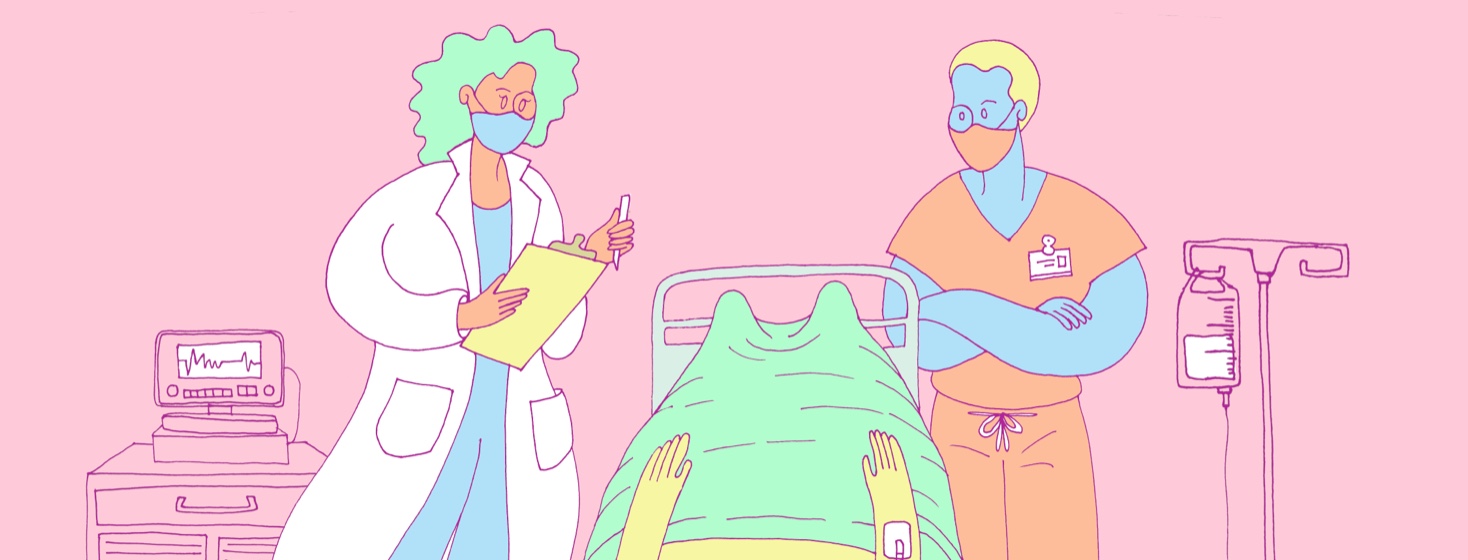Getting Ready for Laparoscopy
Planning surgery for endometriosis can bring on a mix of emotions: You may feel excited at having some pain relief, or about getting a diagnosis, but nervous at the same time. Preparing ahead of time can ease some of the worry and make your recovery easier.
Ask questions
Be clear about what you can and can’t do after surgery. Ask your doctor about how long you should be off work and how soon you can drive again. You may be asked to avoid intercourse, exercise, and heavy lifting for a time. Remember that every surgery is different, and everyone recovers differently. Listen to your body, rest when you need to, and don’t overdo it.
Post-op pain
Be prepared with your pain medications. Have some ibuprofen and acetaminophen at home, if you can take them. Ask how you will get your prescription pain medication, and if you can pick it up before surgery.
Have an empty stomach
Follow the pre-op instructions carefully. Your doctor may have you stop eating and drinking at a specified time before surgery, or may ask you to drink some clear fluids beforehand. Be sure to get that timing right for the safest surgery.
Comfort foods
Prepare and freeze some simple meals for after surgery, or arrange for your support team to bring you some. Soups, smoothies, and other foods that are easy on your stomach are good choices.
Unexpected effects
You may have some vaginal spotting after surgery; This is normal (heavy bleeding is not, so call your doctor if you have heavy flow). Your doctor may recommend not to use tampons, so have some pantyliners available to handle this. Soothing cough drops or a throat spray will help if you have a sore throat after anesthesia. And shoulder pain is common after laparoscopy. This is from air left inside the body after surgery, and usually gets better quickly.
Your chauffeur
You will probably go home the same day as your surgery. You’ll need someone to take you home, so plan ahead.
Comfy clothes
Bring some comfortable clothing to wear home. A flowy dress or pajamas with a loose elastic waist work well.
Get up
Your recovery will be easier and safer if you can get out of bed soon after surgery. The recovery room staff will help you with this. Walking helps to prevent blood clots from forming in the legs. For this reason, you may also have some inflatable plastic leggings on, until you are up and about.
Communication
Be clear on who to call if you have any problems or questions after you get home. Typically this will be your doctor’s office, not the hospital or surgery center. Your doctor will probably talk to you about how your surgery went in the recovery room, but often the anesthesia medications make you forget. Ask if you can expect a phone call in a day or two, and know when you’ll have a follow up office appointment. Let your doctor know if you’d like to see pictures.
Patience
Remember that you may not have immediate improvement in your endometriosis symptoms. You and your doctor will make a plan for next steps.
Surgery is a big step in the endometriosis journey. You can make your experience less stressful and more successful by some simple preparation beforehand. Support your body with rest and nourishing foods, and be patient with yourself.

Join the conversation